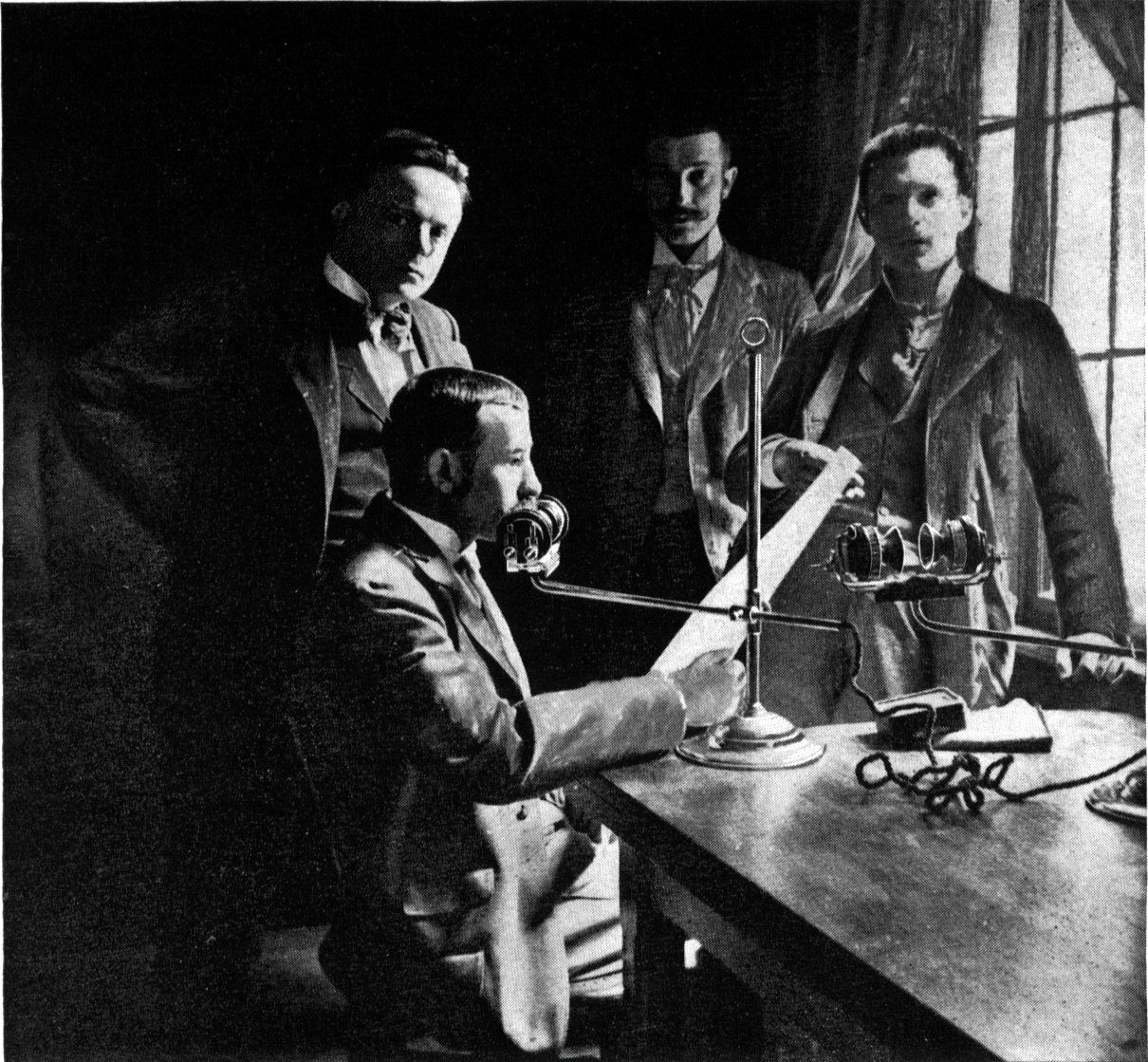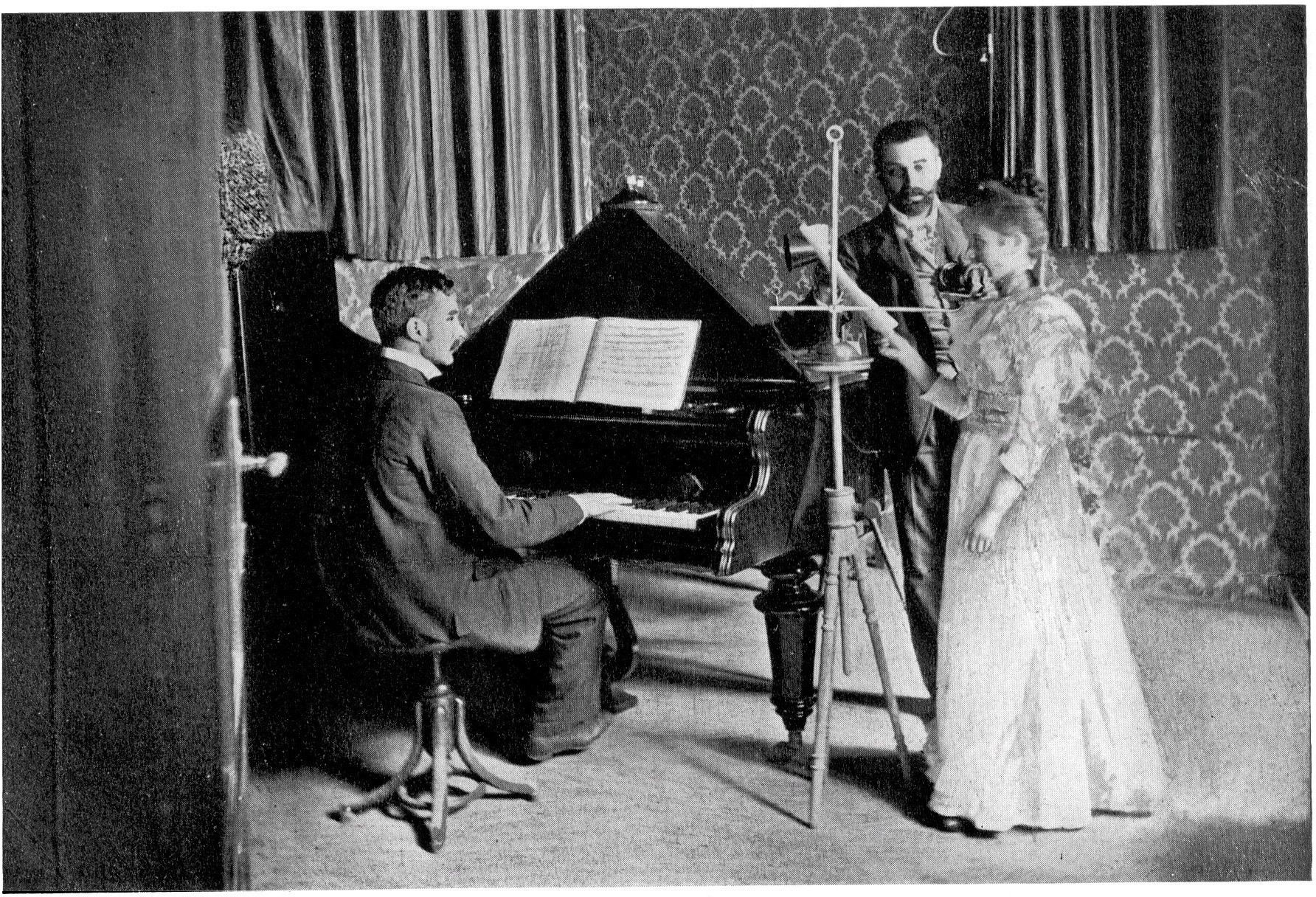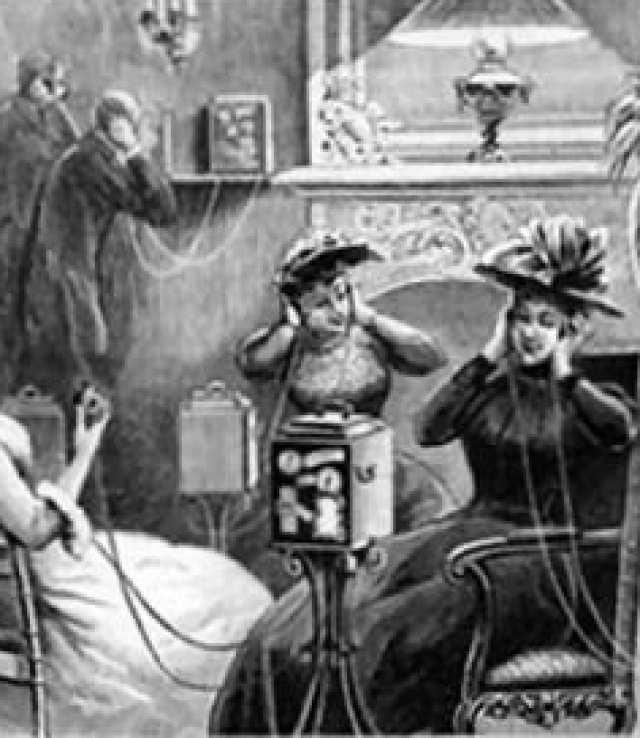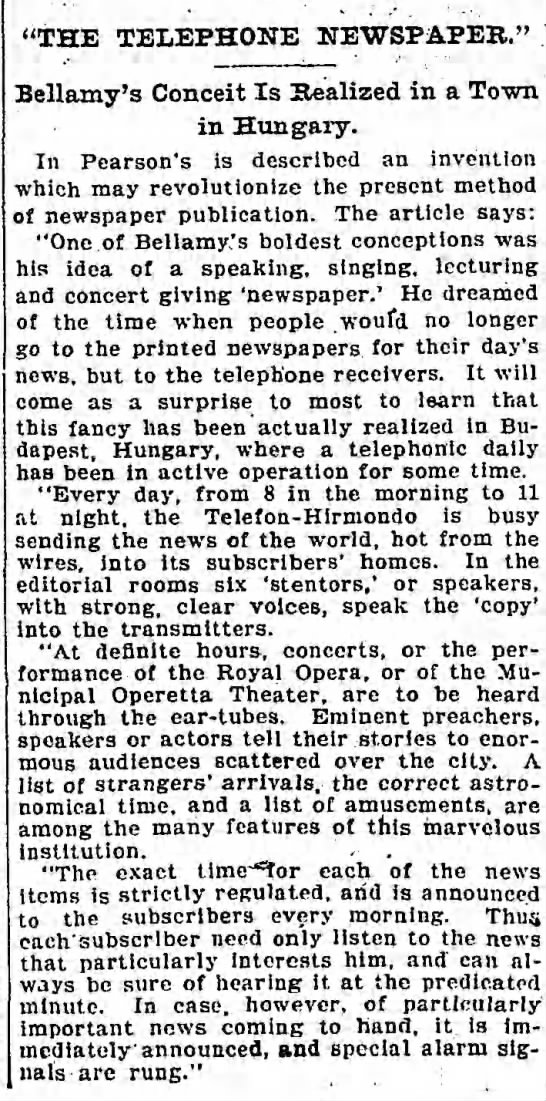These classic 1901 photographs show the Budapest offices of Telefon Hirmondo (or Telephone Herald), a newspaper service read via telephone to subscribers all over that city. Begun in 1893 by Transylvanian inventor Theodore Puskas–who died just a month after the service was launched–the Herald featured updated news all day and live music at night. It cost about two cents a day at the outset. At its height, the company had more than 15,000 subscribers and licensed similar setups in Italy and America. Local department stores, hotels and restaurants purchased several lines so that their customers could be hooked into flowing news and entertainment almost a century before wi-fi. The popularity of radio in the 1920s, however, made the telephone newspaper superfluous. An article in the November 17, 1902 Brooklyn Daily Eagle described the service. The “Bellamy” it refers to is Edward Bellamy, whose utopian novel Looking Backward had been published to much acclaim in 1897.
The schedule for the U.S. version (stationed in Newark) which started nearly 20 years after the initial Budapest service:
- 8:00: Exact astronomical time.
- 8:00-9:00: Weather, late telegrams, London exchange quotations; chief items of interest from the morning papers.
- 9:00-9:45: Special sales at the various stores; social programs for the day.
- 9:45-10:00: Local personals and small items.
- 10:00-11:30: New York Stock Exchange quotations and market letter.
- 11:30-12:00: New York miscellaneous items.
- Noon: Exact astronomical time.
- 12:00-12:30: Latest general news;naval, military and congressional notes.
- 12:30-1:00: Midday New York Stock Exchange quotations.
- 1:00-2:00: Repetition of the half day’s most interesting news.
- 2:00-2:15: Foreign cable dispatches.
- 2:15-2:30: Trenton and Washington items.
- 2:30-2:45: Fashion notes and household hints.
- 2:45-3:15: Sporting news; theatrical news.
- 3:15-3:30: New York Stock Exchange closing quotations.
- 3:30-5:00: Music, readings, lectures.
- 5:00-6:00: Stories and talks for the children.
- 8:00-10:30: Vaudeville, concert, opera.




